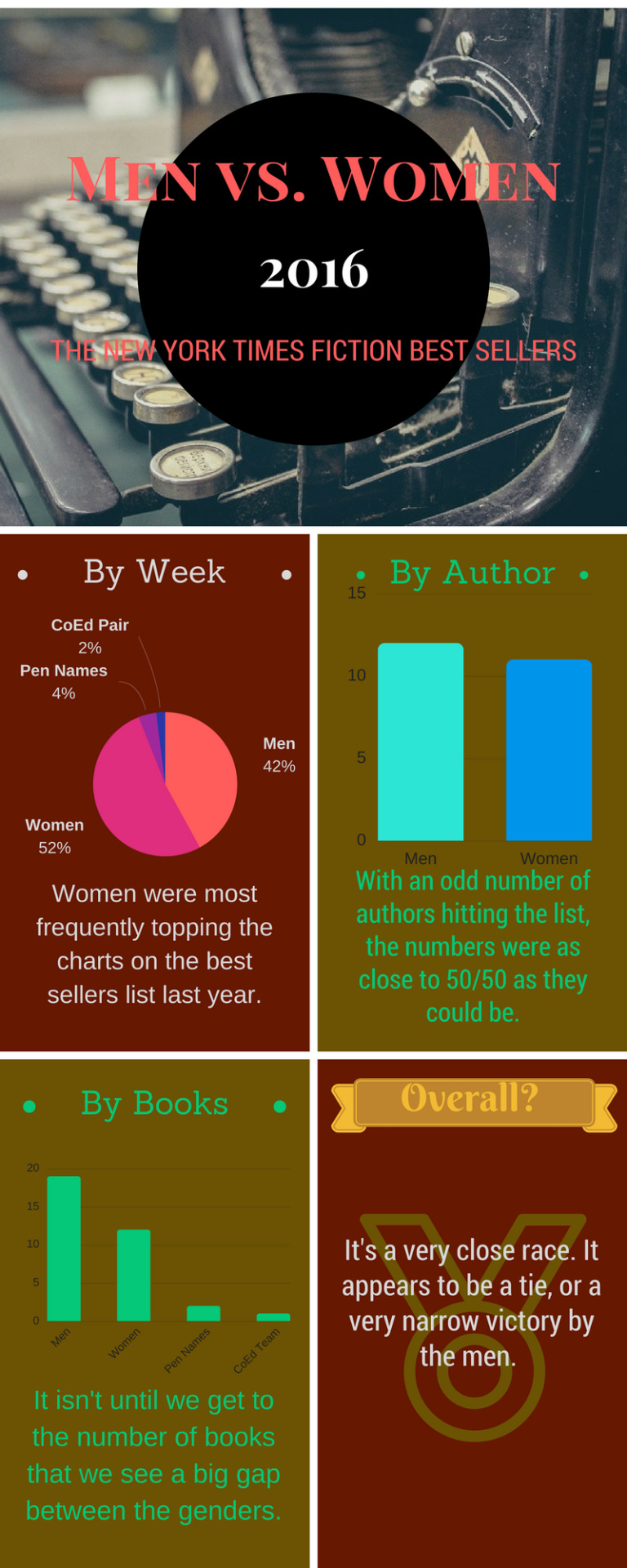Text
You can’t learn everything from your backyard.
Despite what many of us were taught in our high school English classes, Henry David Thoreau’s advice on the matters of travel and soul searching isn’t the greatest for writers and world building. We can search our souls without leaving our hometown, but we can’t experience different environments without getting out there. This is extremely important when building a world of your own.
Growing up, I lived with my mother in Camas, Washington. It’s a little mill town in the conservative pocket of Clark County. Just across the river is the thriving cultural hub that is Portland, Oregon. Now, I live in Texas, near Dallas. It’s just about as different as you can get without going to the other side of the globe. As a teenager, I spent quite a few summers here with my father, but living here has taught me to see some things I hadn’t considered before.
Two very different sunsets.
Friends from back North often ask me what it’s like to live in a red state since I lived in a blue state for so long. The differences, though, aren’t really political. Sure, that’s part of it, but the culture itself is what shows the most. It comes up in some of the strangest ways.
“Thanks for warning me…that would have gotten on my nerves eventually.”
Language is something that constantly evolves. It is influenced by the culture of the people who speak it. World building sometimes means coming up with a unique language to suit the people inhabiting the new universe. If it doesn’t, it probably involves different usage of certain words. This became evident to me when I found out my stepmom had warned my grandma about the way I talk before we met.
My step-grandmother thanked my stepmom, Amy, for the warning she received before meeting me. “She doesn’t say ‘sir’ or ‘ma’am,’ Mom. It’s a cultural thing. It’s as different as if she came here and started speaking Spanish,” Amy said.
At the time, Grandma brushed it off with an “okay,” and life moved on. When we met, we got along instantly. We bonded over our love of dogs and talked endlessly about Mississippi, her home state, and the Pacific Northwest. But Amy was right. I never once said “Yes, Ma’am,” to her. My vocabulary was different. I was quiet and polite, but not in the typical Southern way.
Who wouldn’t love this face?
That’s why she thanked Amy. Grandma grew up with honorifics being mandatory, and she raised her kids to know when to use them. It’s a sign of respect, and not using them can be disrespectful. In the North, however, it’s seldom used outside of the service industry.
When building your worlds, consider the differences of language. Would it cause any strife between characters? Would it be something a character would have to learn? What speaking habits would some of them have that others don’t?
“It doesn’t matter if we like you here. If we aren’t hospitable, the desert might take you.”
We have a family friend, Camille, who has a habit of being very straight forward, very blunt, in a way I’ve not seen from anyone else. When I met her for the first time in years, she intimidated the living hell out of me. Reading people is not my strong suit. I have had to actively teach myself how to read body language and I’m still working on learning tone. Camille is bold and loud. She has a passion for lifting and Pekiti–Tirsia Kali. In many ways, she’s my exact opposite.
I spent a lot of my time when she was around quiet, and it didn’t take long for her to realize I was nervous. She took me out to a Thai restaurant she really liked and we talked the whole time. We discovered a shared interest in music, both of us being clarinet players, and she offered to teach me the basics of Pekiti.
I told her when we got back to the car I’d been afraid she wouldn’t like me much. We’d seemed to be so different. She offered me a shrug and said, “It doesn’t matter if we like you here. If we aren’t hospitable, the desert might take you.”
I stared at her for a moment, stunned. The desert wasn’t a person. It didn’t have that much power. But she explained her statement to me, and I realized yes, yes it does.
You might not even notice until it’s too late.
The desert is hot, formidable, and merciless. Without water, people die. This fact alone shaped the whole concept of Southern Hospitality. When westward expansion was happening, survival depended on being able to put aside differences and help each other. The culture reflects that. Politics don’t matter. Religion doesn’t matter. Race doesn’t matter. Sexuality doesn’t matter. In the desert, without water, you will die. Francis Duggan was right. Death is the great equalizer.
In your world building, consider what parts of the environment would impact the culture of the inhabitants. Are people able to be generous and band together, or are resources so slim, it’s better to be solitary? Is it easy to survive alone? How does the land affect the individual, the family, the community?
“Oh, please. That was mild.”
My fiance is scared of storms.
He lives in Tornado Alley.
When we moved to Texas, he told me over and over one of the things he’d have to work the hardest on getting used to were the thunder storms, the hail, and, God forbid, tornadoes. I tried my best to be reassuring, offering a smile and reassurance that it wouldn’t be the end of the world.
Earlier today he experienced his first tornado watch. Then warning. Then sirens. My dad made a point during the daylight to show us both the clouds and where to look for the formation that would eventually become a tornado. My stepmom drew attention to the sudden drop in air temperature as the cold and warm systems moved about. I pointed out the frequent change in the wind direction. We all wanted to teach him not to be so afraid.
The lightening was like a light show. The sky flashed yellow, then purple, then brilliant grey-blue. But still, it seemed tame. That is, until night fell. It sounded like our house was on the edge of the ocean. The wind blasted and the sky never stayed dark. It was almost daylight without the sun.
Hail dumped down. We huddled under the overhang by the front door, watching in quiet awe. Alex murmured to me then, “Nature can really eff some shit up.” No truer words have been spoken.
We retreated inside when the ice shards started skittering across the concrete. Amy and I drew the last of the curtains as the sirens sounded. Dad retrieved a few pieces of hail that had somehow stayed intact.
Yes, those fell from the sky. Yes, they could kill someone.
The wind started to die down. The hail quit falling. The sirens went quiet.
I looked over at Alex, who was still wide-eyed with the kind of feverish excitement that only comes from finding a new thrill. In the North, we don’t get warnings for storms. The hills and trees hide it. They come suddenly and end just as fast.”See why I told you Northern storms are tame?” I asked. “They’re a lot louder here. Much more violent, too,” I added.
“Oh, please,” Amy said. “That was tame.”
Think about how the environment affects characters’ fears. What is different? What is the same? Thunder storms in the south are more intense, but less frightening to Alex. Storms are also a stereotype of this area, but people are more comfortable with them here. Are there quirks like that in your world? Why?
Texas and Washington are completely different worlds. I am enjoying every minute of learning my new home. Every difference I notice brings me something else to think about when I write.
So go out! Travel! Talk to new people, debate, spark conversation. Find differences and revel in them. The world is richer for being diverse. Even if right now your world is confined to your own Walden Pond, there are people out there who are different than you. Dive into their wealth of information. Think.
Not only is that the route to being a better writer, it’s the route to being a better human.
World Building: This Isn’t Walden Pond You can't learn everything from your backyard. Despite what many of us were taught in our high school English classes, Henry David Thoreau's advice on the matters of travel and soul searching isn't the greatest for writers and world building.
#ask yourself#questions#storms#story time#texas#Travel#w#washington#world building#Writing#writing advice#writing tools
2 notes
·
View notes
Text
Lynching didn’t start in the old West or during Reconstruction, but during the American Revolution. A justice of the peace and farmer in Virginia before the war, one Colonel Charles Lynch, led a band of vigilantes to “bring to justice” British supporters and outlaws. Hanging someone without a trial became known as “lynching” after this particularly enthusiastic patriot.
343 notes
·
View notes
Photo
I just wrote a review on this book! I think it’s pretty likely to be one of my favorites.
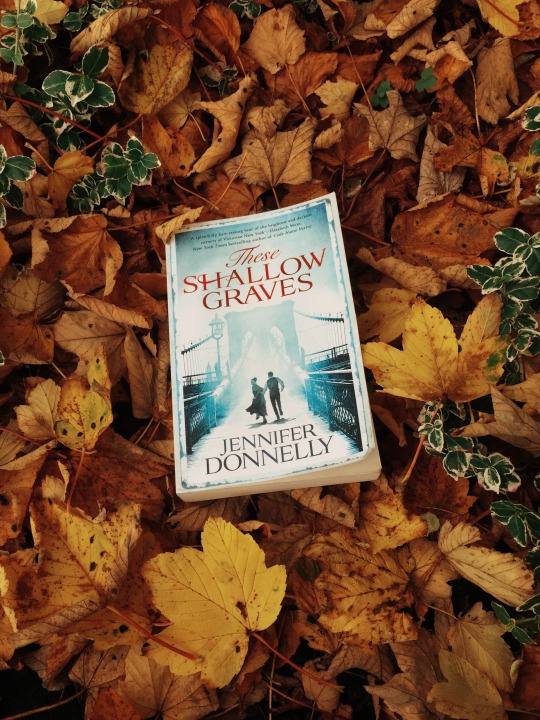
One of my favourite photos I’ve taken of my books
138 notes
·
View notes
Text
Better Dig Deep: These Shallow Graves
Better Dig Deep: These Shallow Graves
It’s currently 9:09am on a Thursday morning and I don’t think I slept more than thirty minutes last night. Huh. I guess that’s what a good book does to you. I discovered Jennifer Donnelly in the late spring of 2014. My friend and I had been aimlessly browsing the library shelves when she’d caught sight of Revolution. Upon completion, I immediately went to the closest bookstore to buy my own copy.…
View On WordPress
#book review#books#jennifer donnelly#murder mystery#mystery#new york#these shallow graves#things to read#victorian era
0 notes
Text
Hello, Readers!
I know it’s been a while since I’ve posted anything-quite a while, actually. That’s because I’ve spent the last month or so absorbed in health issues that have caused me to move across the country. My fiance and I packed up all of our things in a moving truck and drove from Vancouver, WA to Dallas, TX. It was a trip of a lifetime.
For one week, that yellow truck was home.
During our time on the road, I was reminded of why I love to travel so much. Exploring is one of the things that provides the most long term benefits to writing. Why? Travel helps you become a better person if you let it. In order to maximize the effect, there are a few things you can do.
Take a LOT of pictures…
Your photos will help you remember the experience. Lots of artists use photography to help them with different aspects of their wok. Painters use reference images, musicians use images as inspirations, and writers have a plethora of possible uses for photography. I use pictures for inspiration boards, story boarding, reference images, accompaniment to poetry…the list goes on.
2. But DON’T live behind the lens
Your images can only get you so far. Take this photo for example:
My friend Kara took this picture when I was 15. It’s a glimpse behind the scenes of a horse show. While I love it how real it is, the angle, and the skill it takes to capture a photo like this, I love it most for the memories it evokes.
It makes me think of how my friend Lily and I spent two hours in the snow, shivering, tying to conserve warm water while simultaneously trying to get our horses’ white coats gleaming. It also reminds me of waking at four in the morning so I could be sure the horses had eaten their whole breakfasts before the first class.
It reminds me of how patient my horse was as I spent hours working his mane into manageable braids. It also reminds me of how impatient he was when he realized he had to wear shipping boots in the trailer.
It makes me remember the thrill of cantering in the big show arena where all is silent except the announcer, the hoof beats, and the sound of your own heartbeat.
This photograph brings back a lot of memories, but it isn’t the whole memory on its own. Take pictures as supplements, but be in the moment.
3. Stop Places
One of the things my fiance regrets most about our trip is that we didn’t stop at Disneyland when we went through Anaheim.
We couldn’t have-right now I’m not allowed on roller coasters and the moving van cost more than our tickets would have. But even so, that’s an experience we passed on.
We did, however, stop at a viewpoint right on the ocean, so far south it felt like we could walk to Mexico. We took pictures. We ate lunch. We laughed at Pippin as he charged after prairie dogs and tried to herd seagulls. It was a fantastic experience.
4. Talk to people
When we made it to Gila Bend, Arizona, we had already been on the road for four long days. We were exhausted. Our beds called to us, and in the morning, they insisted on keeping us tethered down with blankets. But my grandparents had other ideas. They picked us up early in the morning for breakfast and then my grandmother’s favorite tourist stop.
It was a blast. Alex and I got to pick out souvenirs that had been hand crafted in Mexico and talk to a lot of people. Some, like my grandparents, camped in the south every winter to escape the bitter northern cold. Others were travelers like us, just passing through. But all of them were human, and all of them were different.
5. Take Notes
Write in a journal. Post updates to social media. Let the world know where you are. Looking back on this trip, there’s a lot I’m glad I jotted down, whether in a Facebook status or a quick scribble with the lights off before I fell asleep in another strange hotel. Those notes help me remember a huge milestone in my life.
And who knows? Maybe I’ll use something in book 3.
Writing on the Road Hello, Readers! I know it's been a while since I've posted anything-quite a while, actually. That's because I've spent the last month or so absorbed in health issues that have caused me to move across the country.
0 notes
Text
Show Me How to Show!
Show Me How to Show!
Approximate read time: 4-5 minutes The tl;dr version of this post: READ THE EMOTION THESAURUS. There is not a single writing book I have gotten more out of. I remember being thirteen years old, sitting cross-legged on my bed, smoothing and re-smoothing the purple and green quilt I’d saved up for 3 weeks to buy. I pressed the phone against my ear and held my breath, anxious for my dad to finish…
View On WordPress
1 note
·
View note
Text
Hey, hey!
A lot of you know me as the chick online who writes about ghosts and service dogs and, well, writing. If I were a character, my blog would probably make me look pretty two-dimensional. Maybe not even equipped to be a supporting role. But of course, there’s a lot more to me than that. (I would imagine there’s a lot more to your supporting characters, too, but that’s a topic for another post.)
Consider this a little bit character sheet meets a little bit about page. Plus, it’s in list format. I’m a sucker for list format. Maybe that’s thing #1.
1.My best friend has 4 legs.
My dog, Pippin, is a saving grace. When I adopted him, he was obviously too young to be taken from his mother. My mom and I had to soak his puppy kibble in warm milk in order to make it soft enough for him to chew. Growing up, he loved to ride around in the hood of my coat. Now, he’s much too big to do that, but he’s just about as attached to me.
Except when he’s stealing Dad’s chair, that is.
Pip was originally supposed to be my dog for 4H, but I absolutely detested it. The meetings were difficult for me, having started right after an invasive knee surgery, and I lost all interest after I found out I wouldn’t be able to go to the county fair my first year. I’m glad I tried it, though. Lots of people find 4H to be a fun and fulfilling experience. Frankly, I loved it when I was working with guinea pigs and sewing. Dogs just didn’t do it for me. Pip didn’t like it either. He spent meetings barking at other dogs and cowering behind my legs. My mother agreed with me that the competition was too fierce and the culture too judgmental. It wasn’t any fun.
I quit 4H a couple months after I joined. Pip and I almost instantly relaxed and became much closer. He’d curl up by me when I did homework and ride in my coat hood until he got too big. As I got older and I started displaying more and more symptoms of a frustrating “mystery illness,” Pip started learning how to help me in my day to day life. Through careful training and praise for his natural helpfulness, Pip has grown into a friend I truly depend on.
I’m a pyrotech.
When I was 15, I was green with envy. I had called my father on the fourth of July, and he didn’t pick up the phone. I assumed he must be at work and tried again a few hours later. Still no answer. Finally, the next day, he called to apologize and tell me he’d been without a cell phone for the day because he’d been blasting off fireworks the size of the average human skull.
A few years went by. Every year around the fourth, he’d disappear for a couple days and come back covered in a thin layer of black powder and a tan for the ages. The jealousy grew. Finally, when I was nineteen, I boarded a plane on July 1st to light up the sky with him and the rest of the crew.
Photo cred: Amy Webster
I was the youngest face among the dozen or so pyrotechs, but I was quickly accepted into the fold. Many of them teased about how I’m essentially a female version of my father, with humor even dryer (if that’s even possible). Within hours, those people felt like family. They taught me the tricks of the trade, watched me like a hawk, and threw me water bottles so my Pacific Northwest body didn’t dry out like a strip of jerky under the Texas sun.
That sun is awful. It always is.
The next year, when I was twenty, our head Pyrotech assigned me and my now-fiance to the mini show that would coordinate with the main fireworks. Alex and I loaded up my dad’s car with boxes upon boxes of explosives and carefully marked the field, matched the cakes, and ran the wires. Come showtime, we flipped the switches to detonate our own showers of sparks.
Last year, my vacation request was denied and my dad ran the coordinated show. He told me it was a bit intimidating to live up to my standard. This year, though, nothing is stopping me from going back out to my Fireworks Family.
My first short story was about a guinea pig who traveled the world.
As I mentioned before, I was in 4H as a kid. When I was in fourth grade, my mom and I made a trek across Clark County every other week with a small animal carrier in the back seat. Inside was a tiny ball of white fur I’d been so original as to name Snowball. (In reality, we called her Snowy ninety percent of the time.) She was a long-haired silkie himalayan guinea pig. For nine-year-old me, she was the best thing since sliced bread. I competed with her in cavy shows (yes, those are a thing) and learned a lot about animal husbandry during that time.
That was also about the time I started getting sick. I was plagued with migraines so severe, I would come home from school screaming. My mother begged the school to keep Tylenol on hand for me, to let me go to the library during lunch if I didn’t feel well, to do anything other than force me to sit quietly in the sun and try to endure. No one listened to her. Doctors weren’t sure what to do with me other than write out prescriptions for Topamax and subject me to brain scan after brain scan. All were normal. It was hell.
This is far too familiar to me.
I ended up missing out on a lot of what made childhood “normal” because of those headaches. I missed a lot of playdates. I stayed home from school a lot, even up through high school. The solution for nine-year-old me was to write. And I wrote a lot. A lot. To the point that my childhood bedroom was littered with papers outlining short stories I’d never finished, rough outlines of plays I’d forget by the next morning, and one binder I guarded with my life. Inside, there were dozens and dozens of sheets of paper covered in my tiny, meticulous printing. Together, they came together to tell a story of a guinea pig who had floated away on a helium balloon and ended up accidentally travelling the whole world.
Her name was Snow.
I am a certified A level horseback rider.
When I was about 10 years old, the horse bug bit me. Hard.
My mom had horses growing up. I used to flip through her photo albums. Rocky, the quarter horse she leased from her neighbor for $1 a year when she lived in Coos Bay, Oregon, was a beautiful bay with the most patient disposition she’d ever met. She’d had to leave him behind when the military took my grandpa to Florida, though. There, she bought Spirit, a high strung palomino mare. Half of her high school years were spent riding her bike out to the barn and cleaning stalls in exchange for a place for her mare.
At eleven, my mom took me for my very first horseback riding lesson. It was a challenge for me, the awkward, self-conscious, always-sick middle-schooler. Under my instructor’s teachings, though, I flourished. I learned how to clean stalls, tie ropes, and take charge. Within months, I was doing the same trade my mom had-cleaning stalls and tossing hay in exchange for time with the gentle giants. Always looming on the horizon, though, was the thinly-veiled threat of severe injury. Three weeks after I’d started lessons, my knee dislocated for the first time. The next ten days were an agonizing wait until my body recovered enough to let me climb back into the saddle.
Horse fever doesn’t go away.
I leased a couple horses during my time there. The one that stole my heart for keeps was Cisco, a 16.2hh Thoroughbred Paint with an attitude as big as the Northwestern forests. As a sophomore in high school, I memorized my Poetry Out Loud entry on horseback. I worked on my novels sitting on the edge of Cisco’s stall. I studied for my final exams sitting cross-legged on the barn floor at the county fairgrounds while my instructor braided my hair to tuck under my velveteen helmet.
Those years were some of the best years of my life.
I wrote my first novel manuscript at age 16 while I was recovering from my second knee surgery.
During my freshman year of high school, I ended up on crutches a grand total of 27 times. My knees would not stay where they belonged. My ankles sprained constantly. I would feel bone scrape on bone and spend half an hour trying to coax my joints back into place only to run onto the field with the marching band two hours later.
Super familiar setting.
This went on for years. I became a master of maneuvering over gravel on crutches, of leading horse safety classes from a chair, and making things work for me. I was still riding my horse at least three times a week and hitting the football field with the marching band at every game. But when, at 15, I collapsed in my bedroom because my knee didn’t like me getting up from my desk, bringing half a bookshelf down with me, my life came to a screeching halt. Something had to change.
I spent almost the next year in a wheelchair on and off. I had physical therapy a couple times a week and a surgery on each knee. Cisco went back into the lesson circuit because I didn’t have the strength to ride. That broke me. He had been my best friend, and then he was gone. Losing him is what spurred me on to write. Through the haze of painkillers and exhaustion, I wrote 250 pages of jerky, unsure prose about a girl who was being visited by the ghost of her sister and her horse.
Ultimately writing that was what enabled me to write this monster of a document-
Those pages are double sided.
-which later went on to become Nightfall.
I think most writers are interesting characters. It’s just a matter of making it through the perpetually distracted outer shell. We never truly stop writing. Everything is filed away for another time.
Keep that in mind the next time you have lunch with one of us. ;)
5 Things You Didn’t Know About Me Hey, hey! A lot of you know me as the chick online who writes about ghosts and service dogs and, well, writing.
0 notes
Photo

Here’s a very happy pug dressed as a ghost from Ghostbusters. Have a nice day.
362 notes
·
View notes
Text
The quickest show not tell tip ever.
‘Always show, not tell,’ is a big fat lie. If you always show, you’ll have half a novel of descriptive words and flowy sentences that will be hard to read.
Here is a quick tip:
Show emotion.
Tell feelings.
Don’t tell us 'she was sad.’ Show us- 'Her lip trembled, and her eyes burned as she tried to keep her tears at bay.’
Don’t show us 'her eyelids were heavy- too heavy. Her limbs could barely function and she couldn’t stop yawning.’ Tell us - 'she felt tired that morning.’
Showing emotion will bring the reader closer to the characters, to understand their reactions better. But I don’t need to read about how slow she was moving due to tiredness.
Likewise, when you do show, keep it to a max three sentences. Two paragraphs of 'how she was sad,’ with no dialogue or inner thought is just as boring.
21K notes
·
View notes
Quote
A professional writer is an amateur who didn’t quit
Richard Bach
Book Geek Quote #821
(via bookgeekconfessions)
1K notes
·
View notes
Photo
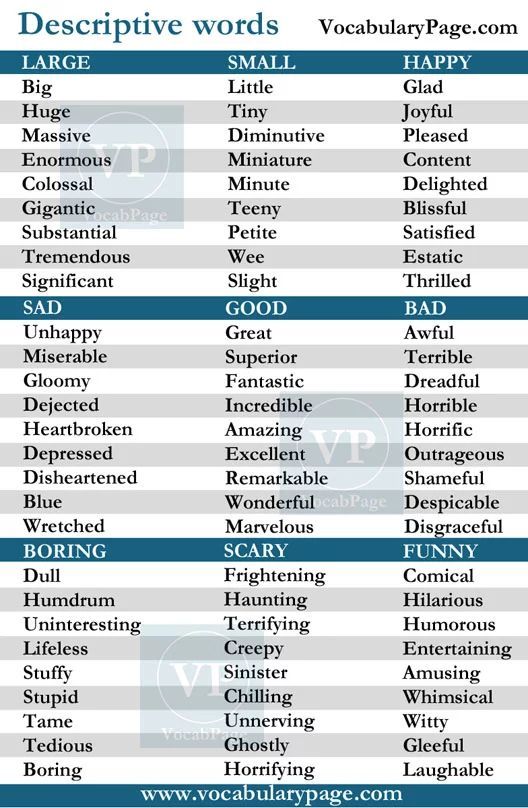
3K notes
·
View notes
Quote
Breathe in experience, breathe out poetry.”
Muriel Rukeyser
(via thegriffinsinkpot)
844 notes
·
View notes
Photo
“Don’t be afraid to write crap because crap makes great fertilizer.”

1K notes
·
View notes
Photo
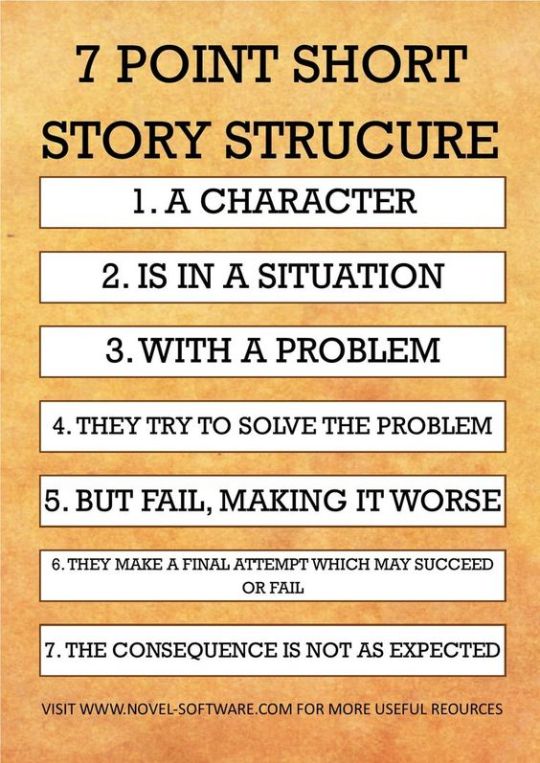
2K notes
·
View notes
Quote
A writer is someone for whom writing is more difficult than it is for other people.
Thomas Mann (via writerniche)
2K notes
·
View notes
Photo
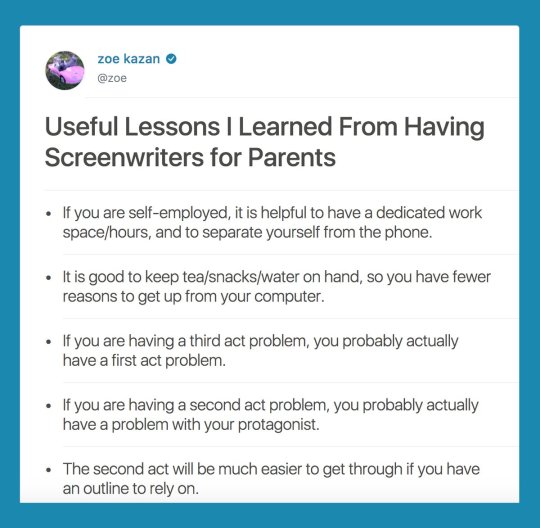
Good advice for writers
14K notes
·
View notes
